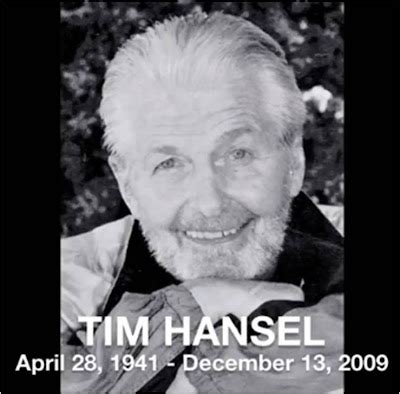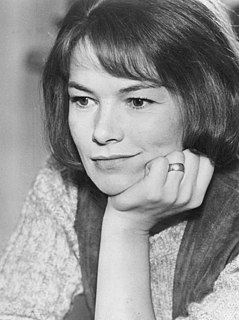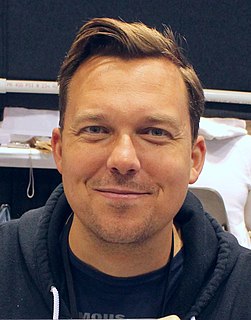A Quote by Nicholas G. Carr
I think we begin to lose the ability to read in the deepest, most interpretive ways because were not kind of calming our mind and just focusing on the argument or the story.
Related Quotes
Literature is an aspect of story and story is all that exists to make sense of reality. War is a story. Now you begin to see how powerful story is because it informs our worldview and our every action, our every justification is a story. So how can story not be truly transformative? I've seen it happen in real ways, not in sentimental ways or in the jargon of New Age liberal ideology.
You don't just have people who wake up in the morning and say, "What evil things can I do today, because I'm Mr. Evil?" People do things for what they think are justified reasons. Everybody is the hero of their own story, and you have to keep that in mind. If you read a lot of history, as I do, even the worst and most monstrous people thought they were the good guys. We're all very tangled knots.
I think that most of us, anyway, read these stories that we know are not "true" because we're hungry for another kind of truth: the mythic truth about human nature in general, the particular truth about those life-communities that define our own identity, and the most specific truth of all: our own self-story. Fiction, because it is not about someone who lived in the real world, always has the possibility of being about oneself. --From the Introduction
Lose the day loitering, 'twill be the same story To-morrow, and the next more dilatory, For indecision brings its own delays, And days are lost lamenting o'er lost days. Are you in earnest? Seize this very minute! What you can do, or think you can, begin it! Only engage, and then the mind grows heated; Begin it, and the work will be completed.
We don't save our soul and leave our emotions and our feelings and our body and all the rest of it out. That's just a way of talking that emphasizes the soul is so fundamental that we can, in some cases, treat it as the whole person because it actually is the thing that integrates all of these aspects of the self and makes them work together. Now, I don't think we can find a passage in the Bible that says that. We have to read and study how it addresses the soul, and we then see that it is the deepest, most vital part of the human self.
Once I start work on a project, I don’t stop and I don’t slow down unless I absolutely have to. If I don’t write every day, the characters begin to stale off in my mind – they begin to seem like characters instead of real people. The tale’s narrative cutting edge starts to rust and I begin to lose my hold on the story’s plot and pace. Worst of all, the excitement of spinning something new begins to fade. The work starts to feel like work, and for most writers that is the smooch of death.
If, as an actor, you allow yourself to be cocooned from the boring pin-pricks of day-to-day existence - like standing in a queue at the butcher's or any of the other dreary little events that we all have in our daily lives - you begin to lose your lifeline to what people are. And if you lose that, you eventually lose the ability to act.






































